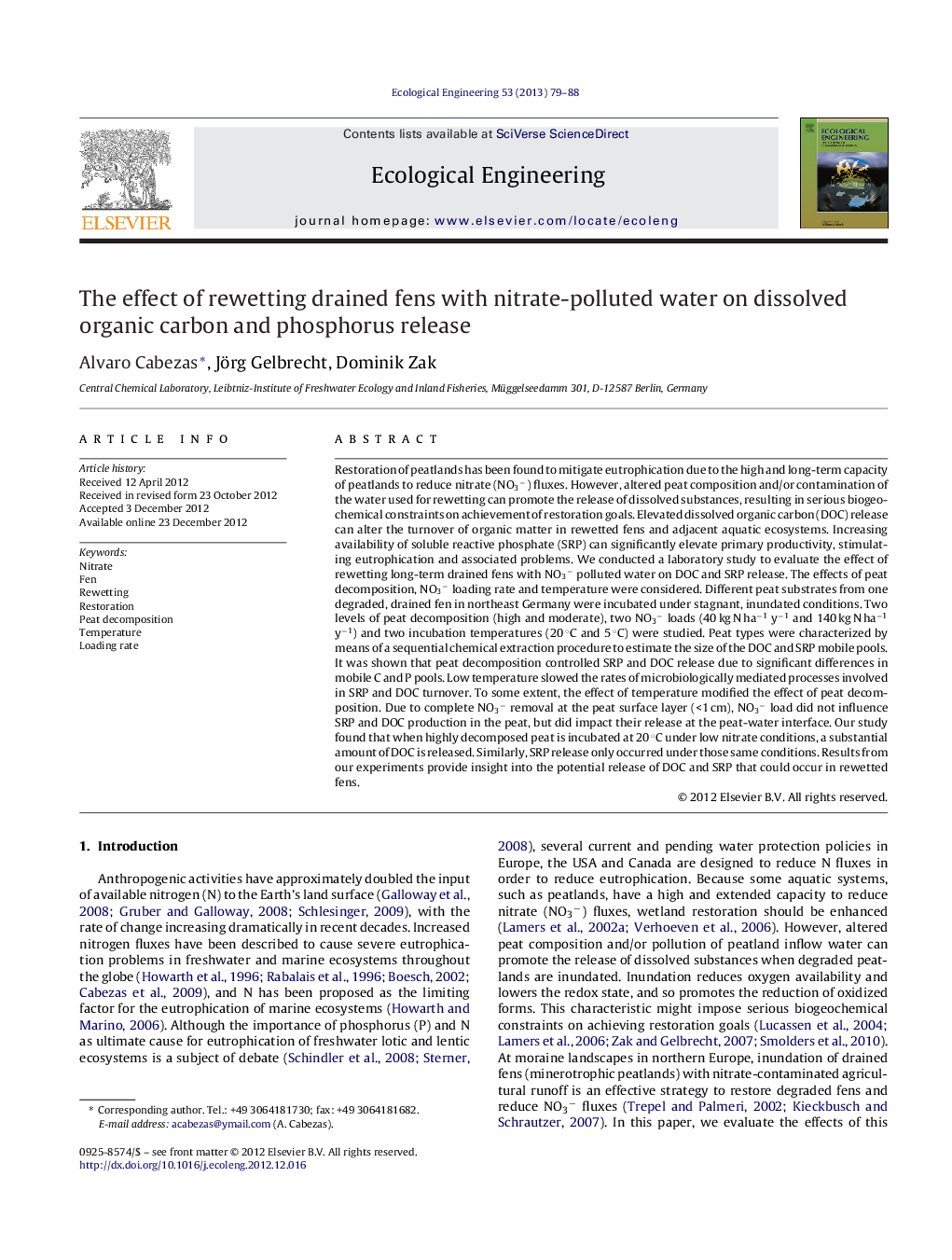| کد مقاله | کد نشریه | سال انتشار | مقاله انگلیسی | نسخه تمام متن |
|---|---|---|---|---|
| 4389669 | 1618045 | 2013 | 10 صفحه PDF | دانلود رایگان |

Restoration of peatlands has been found to mitigate eutrophication due to the high and long-term capacity of peatlands to reduce nitrate (NO3−) fluxes. However, altered peat composition and/or contamination of the water used for rewetting can promote the release of dissolved substances, resulting in serious biogeochemical constraints on achievement of restoration goals. Elevated dissolved organic carbon (DOC) release can alter the turnover of organic matter in rewetted fens and adjacent aquatic ecosystems. Increasing availability of soluble reactive phosphate (SRP) can significantly elevate primary productivity, stimulating eutrophication and associated problems. We conducted a laboratory study to evaluate the effect of rewetting long-term drained fens with NO3− polluted water on DOC and SRP release. The effects of peat decomposition, NO3− loading rate and temperature were considered. Different peat substrates from one degraded, drained fen in northeast Germany were incubated under stagnant, inundated conditions. Two levels of peat decomposition (high and moderate), two NO3− loads (40 kg N ha−1 y−1 and 140 kg N ha−1 y−1) and two incubation temperatures (20 °C and 5 °C) were studied. Peat types were characterized by means of a sequential chemical extraction procedure to estimate the size of the DOC and SRP mobile pools. It was shown that peat decomposition controlled SRP and DOC release due to significant differences in mobile C and P pools. Low temperature slowed the rates of microbiologically mediated processes involved in SRP and DOC turnover. To some extent, the effect of temperature modified the effect of peat decomposition. Due to complete NO3− removal at the peat surface layer (<1 cm), NO3− load did not influence SRP and DOC production in the peat, but did impact their release at the peat-water interface. Our study found that when highly decomposed peat is incubated at 20 °C under low nitrate conditions, a substantial amount of DOC is released. Similarly, SRP release only occurred under those same conditions. Results from our experiments provide insight into the potential release of DOC and SRP that could occur in rewetted fens.
► DOC and SRP release due to rewetting can cause undesirable water quality problems.
► Peat decomposition increases availability and release of mobile DOC and SRP.
► Temperature modifies the effect of peat decomposition by increasing microbial activity.
► Nitrogen load did not influence DOC and SRP production, but affect release.
► Future studies must deal with the fate of DOC and SRP mobile pools.
Journal: Ecological Engineering - Volume 53, April 2013, Pages 79–88